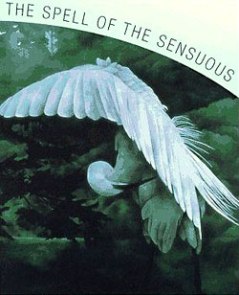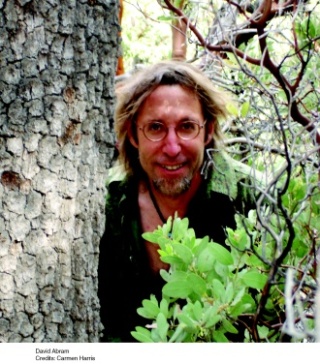I made a promise a while back I would contribute regular writing exercises. I?ve been pretty slack on that front. I hope this?ll make up. But bear with me. ?It?s kind of a of book review with a writing exercise at the end.
I?m currently writing a thesis (exegesis) to accompany a group (flock, herd, pack?) of short stories I?ve written for my creative writing Honours project. The ?thing? each of these stories has in common is shape-shifting ? each tale has a central character that shifts form from human to other-than-human, or vice versa, or something in between.? The theoretical bit I am in the midst of, looks at a bunch of stories (by more famous people than me) that also have a strong element of shape-shifting in them, and examines what kind of stuff gets opened up when metamorphosis is given such an overt presence.

Hathor ? Susan Seddon Boulet
The thing about shape-shifting is, when you start to really think about it and engage with it, it opens up into an incredibly rich and ever-expanding territory. It?s big. It?s fun. There?s so much to explore. You kind of start out with these loose ideas about human/other-than-human relations and end up being taken on a wild ride through genetic engineering and poststructural cyborgs, through ecofeminism and postcolonial thought via fairy tales and mythology, and then deep inside the philosophy of phenomenology and finding yourself on the doorstep of animism, opening up to the inherently aware life of everything around us. Well, that?s what happened to me.
All along the way I knew that I wanted to speak about the way shape-shifting in stories is not something made-up and magical, at its essence (if it has one), but is a process inherent in all life, and when it happens in stories, it is addressing something both ordinary (in that it happens all the time) and profound (in that when we take it personally, we can see that it expands and connects us to EVERYTHING).

Ok, I?m being a bit abstract about all this, I know. I?m still forming these thoughts into something that can make some kind of sharable sense. In the meantime, though, I wanted to share the beautiful articulation of thought that I have found in a book called ?The Spell of the Sensuous? by David Abram. This book is that rare thing ? the one you start to read and shivers go down your spine. The one you read and you don?t feel so much like you?re being talked to so much as feeling like you?ve been plunged deep inside a reciprocal conversation, because each bit you read seems to be a direct answer to an ache that?s been in your heart since the time you first started to figure out how most people lived in this world.

And the marvellous thing is, the way the book does this, it actually embodies what it is speaking about, which is about perception being ?an experience of reciprocal encounter? when we pay attention to it at its most direct intersection with what it is we perceive ?prior to all our conceptualisations and definitions.?
This recognition of perception as a dynamic exchange has a heck of a lot to do with writers and writing. Our perceptions are the base materials that we use in our craft, they?re what we paint with, weave with, build with and blend and bend into all the countless creations possible when words are turned into imagery. No matter how imaginative we are, no imagery is really pulled straight from our heads. It is from our experiences with the world, with things, with other beings, with landscapes and rooms and objects and voices and wavelengths and winds ? all the myriad experiences open to the perception of the senses of our physical body, that this imagery is based upon, whether first-hand, or handed down over centuries from our ancestors.

Der, you might say. That?s obvious. And okay, maybe it is. But it?s so goddam obvious I think we miss the profundity of it much of the time.
Take this, for example: ?? in so far as my hand knows hardness and softness, and my gaze knows the moon?s light, it is as a certain way of linking up with the phenomenon and communicating with it. Hardness and softness, roughness and smoothness, moonlight and sunlight, present themselves in our recollections not pre-eminently as sensory contents but as certain kinds of symbioses, certain ways the outside has of invading us and certain ways we have of meeting this invasion?? They?re the words of Maurice Merleau-Ponty, whose major work was to investigate and elaborate the philosophical terrain known as ?phenomenology?, which is the intellectual basis of Abram?s book.
There is something profound in recognising that what is ?outside? our bodies, can ?invade? us in the process of perception. As Abram points out in his book, Merleau-Ponty?s writing is full of such words. Throughout his work, all that we traditionally describe as ?passive and inert?, is ?consistently described in the active voice?, so that the ?sensible world? beckons, summons, ?holds itself aloof?, expresses itself, takes possession and even ?thinks itself within me?. Abram suggests that this isn?t just a pretty, poetic turn of language, but is an inevitable result of what happens when you try to speak about the world as it is directly experienced, rather than shutting off from it.
So here?s my writing exercise for those who are up for it (and the potential profundity it may reveal in the ordinary world surrounding you): write about the ?sensible world? in the active voice. Any bit of it, whichever bit of it presents itself to you. It might be a cup or the sky. It might be a cat or a rock, a breeze or a building. See what happens.

image by Miftah Fauzan
But if you remain unconvinced of the worth of this exercise for your writing (or your life), read this:
?We conceptually immobilise or objectify the phenomenon only by mentally absenting ourselves from this relation, by forgetting or repressing our sensuous involvement. To define another being as an inert or passive object is to deny its ability to actively engage us and to provoke our senses; we thus block our perceptual reciprocity with that being. By linguistically defining the surrounding world as a determinate set of objects, we cut our conscious, speaking selves off from the spontaneous life of our sensing bodies? Only by affirming the animate-ness of perceived things do we allow our words to emerge directly from the depths of our ongoing reciprocity with the world.?
So, go for it. See what happens when you open up to experiencing the world as awake and alive and active and write from this openness. I dare ya.
?
?
?
Like this:
Be the first to like this.
Source: http://sistersofthepen.wordpress.com/2012/08/28/sensibly-spellbound/
city creek center andrew luck pro day josh johnson kim kardashian flour matt forte jeremy shockey new orleans saints
No comments:
Post a Comment
Note: Only a member of this blog may post a comment.